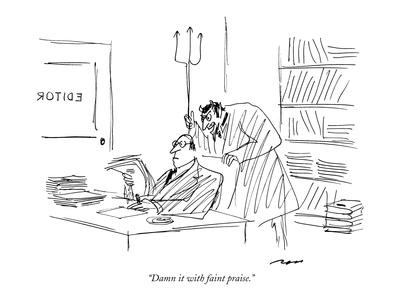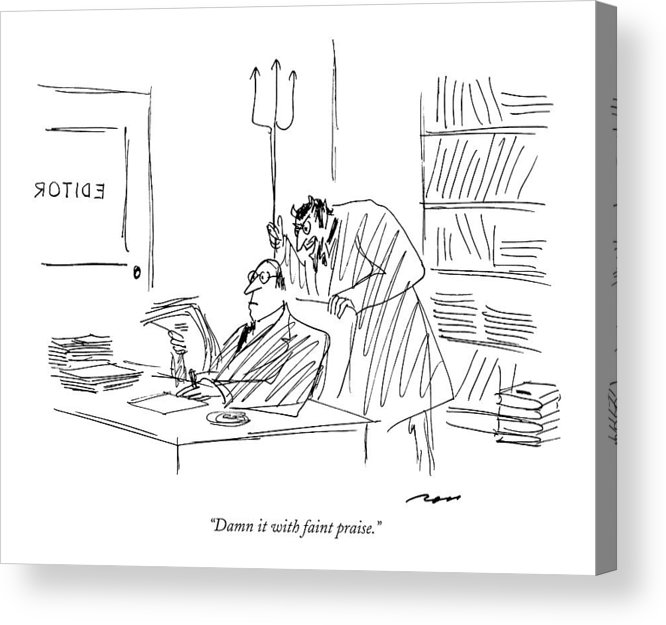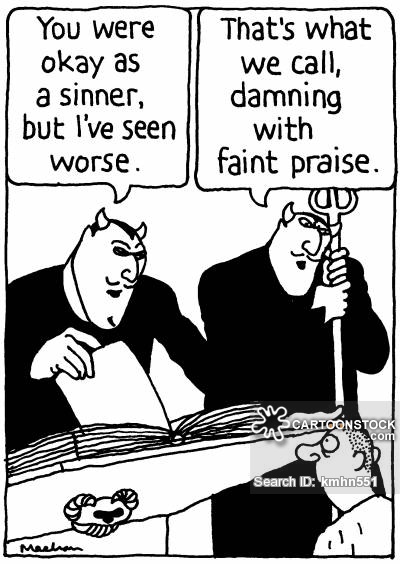
<. The Latin word evolved a legal meaning of "pronounce judgment upon." Theological sense is first recorded early 14c.; the optative expletive use likely is as old.
Damn and its derivatives generally were avoided in print from 18c. to c.1930s (the famous line in the film version of “Gone with the Wind” was a breakthrough and required much effort by the studio). The noun is recorded from 1610s; to be not worth a damn is from 1817. The adjective is 1775, short for damned; Damn Yankee, characteristic Southern U.S. term for “Northerner,” is attested from 1812. Related: Damning.
To criticize someone or something indirectly by giving a slight compliment: “When the critic remarked that Miller’s book was ‘not as bad as some I’ve read,’ she was obviously damning it with faint praise.”
Compliment so feebly that it amounts to no compliment at all, or even implies condemnation. For example, The reviewer damned the singer with faint praise, admiring her dress but not mentioning her voice. This idea was already expressed in Roman times by Favorinus (c. a.d. 110) but the actual expression comes from Alexander Pope’s Epistle to Doctor Arbuthnot (1733): “Damn with faint praise, assent with civil leer, and, without sneering, teach the rest to sneer.”
In addition to the idioms beginning with damn
- damned if I do, damned if I don’t
- damn well
- damn with faint praise
also see:
- do one’s damnedest
- give a damn
- not worth a dime (tinker’s damn)
 Liberal Dictionary English Dictionary
Liberal Dictionary English Dictionary


